Table of Contents
Rough Idle in Car: Diagnosis and Repair Guide (Mercedes-Benz E Class W212 with M271 engine)
A rough idle in a car can be frustrating for drivers and alarming for technicians. When the vehicle shakes or vibrates while idling, it often indicates underlying mechanical or electrical issues that require prompt attention.
In this case study, we explore a Mercedes-Benz E Class W212 equipped with the M271 engine that was brought into the workshop with rough idle, difficulty starting, and a rattling noise. These symptoms, often linked to timing chain wear, are common in the M271 engine. We’ll walk through the diagnostic steps, repair process, and prevention tips to help you understand how to effectively resolve this issue.
Vehicle Details
- Model: Mercedes-Benz E Class W212
- Engine: M271 Inline-4
- Customer Complaint: Rough idle, hard starting, rattling sound, check engine light
Symptoms of Rough Idle
The customer described several noticeable issues:
- – Rough idle: Excessive engine vibrations and uneven running while idling.
- – Hard starting: Multiple attempts required to start the vehicle, especially during cold starts.
- – Rattling noise: Metallic rattling from the engine bay, raising concerns about internal component wear.
These symptoms often signal timing chain problems in the M271 engine.
Common Reasons for Rough Idle
Rough idle can result from a wide range of issues. Below are the most common causes, particularly relevant to Mercedes-Benz engines:
| Cause | Description |
|---|---|
| Timing chain wear | A stretched chain misaligns camshaft and crankshaft timing, leading to misfires. |
| Ignition faults | Worn spark plugs, faulty ignition coils, or wiring problems cause incomplete combustion. |
| Vacuum leaks | Cracked hoses or intake leaks disturb the air-fuel ratio, creating unstable idle. |
| Fuel delivery issues | Failing injectors, clogged filters, or weak fuel pumps reduce fuel flow. |
| Dirty throttle body | Carbon buildup restricts airflow, affecting idle stability. |
| Faulty sensors | Malfunctioning MAF or O2 sensors send incorrect data to the ECU. |
Diagnostic Process
To identify the root cause of the rough idle, a systematic diagnostic procedure was followed.
Step 1: OBD-II Scan
- – A professional OBD-II scanner (Xentry) was used.
- – Fault codes indicated misfires and timing-related deviations.
- – This pointed to a potential timing chain issue.
Step 2: Physical Inspection of Timing Chain
- – The timing chain cover was removed for direct inspection.
- – Finding: The chain was stretched and no longer maintaining precise synchronization between the camshaft and crankshaft.
- – This confirmed that the chain was the primary cause of the rough idle.
Step 3: Checking Related Components
- – Camshaft sprockets (cam wheels): Found worn, causing irregular engagement with the chain.
- – Chain guides: Showed significant wear, contributing to chain slack.
- – Tensioner: Weak and unable to maintain proper chain tension.
The combination of these faults led to timing misalignment and misfires.

Repair Process

With the diagnosis complete, the following repair steps were taken:
1. Replacing the Timing Chain & Components
- – Installed a new OEM timing chain.
- – Replaced worn camshaft sprockets.
- – Installed new chain guides and a tensioner for proper tensioning.

2. Alignment and Synchronization
- – The camshaft and crankshaft were realigned to factory specifications.
- – Timing marks were carefully verified to eliminate any misalignment.


3. Reassembly and Testing
- – The engine was reassembled with all new parts.
- – ECU fault codes were cleared.
- – A test drive confirmed smooth operation with no vibrations or rattling noises.
Outcome
After repairs, the Mercedes-Benz E Class W212 showed immediate improvements:
- – Smooth idle: No vibrations or shaking.
- – Quick starting: Reliable engine start, even during cold conditions.
- – No rattling noise: Elimination of metallic sounds from the engine bay.
- – Enhanced drivability: Stronger acceleration and no misfires.
- – No warning lights: ECU showed no remaining fault codes.
Explore More Mercedes Engine Misfire Issues
For a deeper dive into all misfire-related problems, visit our hub page: Mercedes Engine Misfire Issues – Causes and Fixes. You’ll find grouped case studies, step-by-step diagnostics, symptom–cause–fix tables, and prevention tips to help you resolve misfire problems quickly and effectively.
Symptom – Cause – Fix Table
| Symptom | Likely Cause | Fix |
|---|---|---|
| Rough idle with vibrations | Stretched timing chain | Replace chain, sprockets, guides, tensioner |
| Rattling noise in engine bay | Worn guides or weak tensioner | Install new guides and tensioner |
| Hard cold starts | Timing misalignment | Realign camshaft–crankshaft with new chain |
| Misfires across cylinders | Ignition or timing fault | Replace spark plugs, coils, or timing parts |
| Check engine light on | Camshaft deviation codes | Diagnose and repair timing components |
Preventive Maintenance Tips
To avoid rough idle problems in the future, Mercedes M271 engine owners should follow these guidelines:
- – Regular oil changes: Use OEM-approved synthetic oil to reduce wear on the timing chain.
- – Listen for early warning signs: Clicking or rattling noises during cold starts often signal timing wear.
- – Inspect ignition system: Replace spark plugs and ignition coils at regular service intervals.
- – Monitor engine performance: Address hard starts, vibrations, or loss of power promptly.
- – Schedule periodic inspections: High-mileage vehicles should have the timing chain and sprockets checked.
FAQs on Rough Idle in Mercedes-Benz
Q1: What causes rough idle in Mercedes-Benz E Class W212 with M271?
The most common cause is a stretched timing chain. Other causes include ignition coil faults, dirty throttle body, or vacuum leaks.
Q2: Can I keep driving with rough idle?
Not recommended. Rough idle often indicates misfires, which can damage the catalytic converter and engine components if left unresolved.
Q3: How much does it cost to replace the timing chain in a Mercedes W212?
On average, between €1,200–€2,000, depending on parts and labor.
Q4: How do I know if my timing chain is failing?
Common signs include rattling noises, hard cold starts, misfire codes, and rough idle.
Q5: Can preventive maintenance extend timing chain life?
Yes. Regular oil changes, inspections, and early attention to warning signs can significantly extend chain lifespan.
Conclusion
This case study of a Mercedes-Benz E Class W212 with the M271 engine demonstrates how rough idle can be effectively diagnosed and repaired.
The root cause a stretched timing chain and worn related components was confirmed through fault codes and visual inspection. Replacing the chain, sprockets, guides, and tensioner restored the vehicle’s smooth idle, eliminated the rattling noise, and improved starting reliability.
For Mercedes owners, the key takeaway is clear: don’t ignore rough idle or rattling noises. Early intervention prevents severe engine damage and ensures your car continues to deliver smooth, reliable performance.
Author
Written by: Mercedes Expert
Automotive Technical Trainer & Mercedes-Benz Diagnostic Specialist
With years of hands-on experience repairing and diagnosing Mercedes-Benz vehicles, specializes in case-study-based troubleshooting guides that blend workshop accuracy with educational clarity.
Last Updated: September 2025

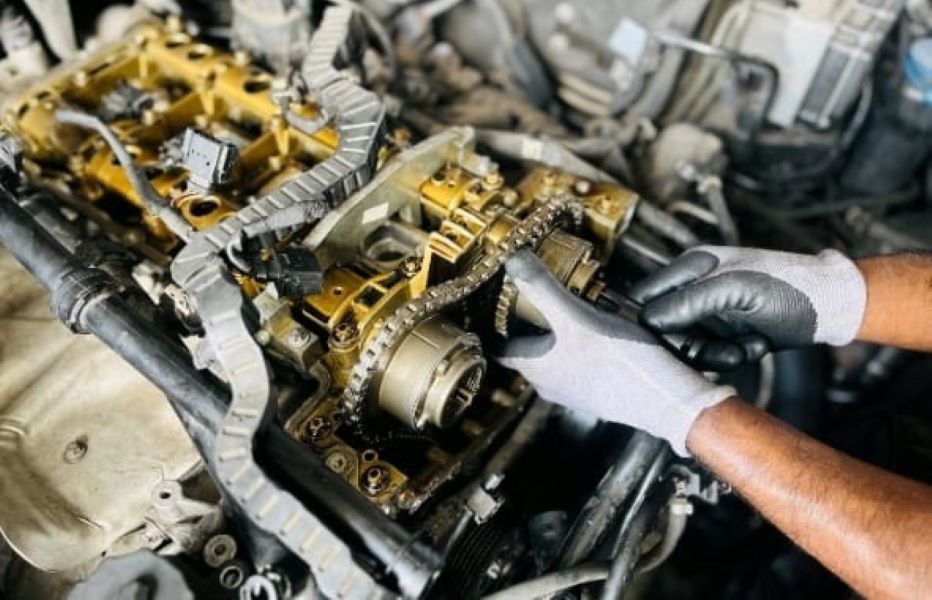
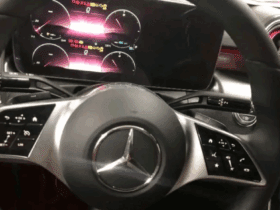
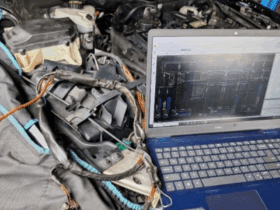
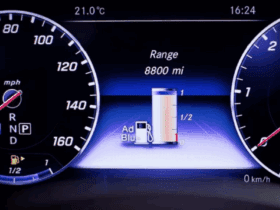
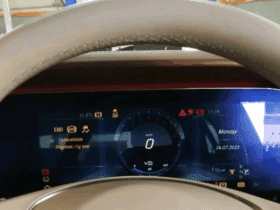
Leave a Reply